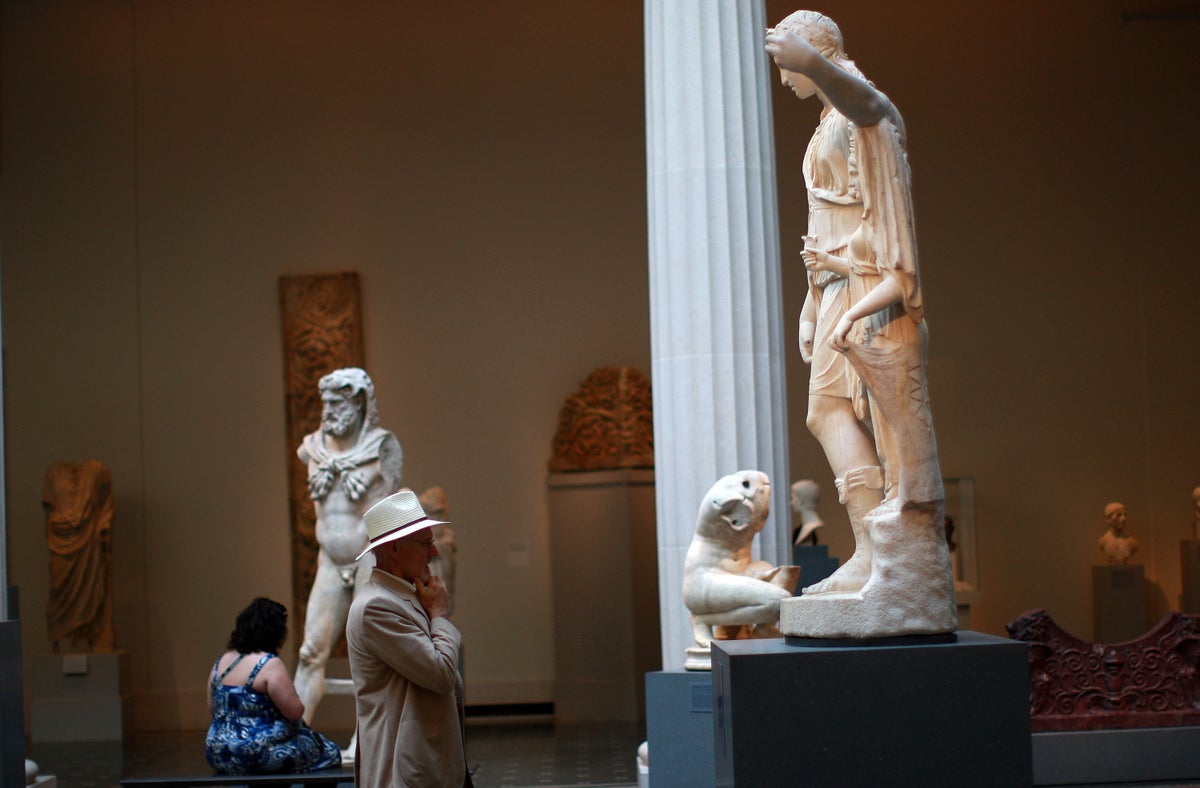
Last month, Lucius Verus arrived in Turkey. It was big news. After a life of international intrigue and perhaps criminality, the Roman emperor, valued at $15m, was home.
The actual Verus had been dead since the second century CE, but a rare life-sized bronze of the ruler only arrived in the city of Antalya in November.
The artefact was one of 18 masterworks, worth an estimated $24m, seized by authorities from the massive and controversial private collection of New York philanthropist Shelby White, The Art Newspaper reports, antiquities that have since been returned to governments and cultural institutions in their original homes of Turkey and Italy.
Officials from the Manhattan District Attorney’s Office located the objects—including sections of a $1m Anatolian columned sarcophagus, and a $150,000 sixth century BCE cauldron—during June of 2021 and April of 2022, according to search warrants seen by the publication.
The office declined to comment to the paper, citing an ongoing investigation, while Ms White, told the paper, “I really don’t have anything to say."
Ms White is a prominent philanthropist who has given millions to New York University and the Metropolitan Museum of Art, where she serves as a trustee.
She and her late husband, the financier Leon Levy, amassed one of the largest private collections of antiquities in the US.
The Independent has contacted the Leon Levy Foundation for comment, where Ms White serves as trustee, for comment.
The Foundation says on its website it is committed to “fostering scholarship and research that leads to an interdisciplinary and cross-cultural understanding and appreciation of civilizations in the ancient world.
The couple’s collection has drawn scrutiny in the past.
Experts found that 93 per cent of the objects that Levy and Ms White contributed to a 1990 Met exhibit, Glories of the Past: Ancient Art form the Shelby White and Leon Levy Collection, were of unknown provenance, suggesting the potential for looting or illegal digs.
Ms White also turned over artefacts to Turkey, Greece, and Italy in previous years.
In 2006, Ms White gave a $200m gift to NYU to establish an antiquities research centre, one of the largest gifts in the university’s history, but one not without controversy.
Other leading institutions—including the University of Pennsylvania, the University of Cincinnatti, and Bryn Mawr College—had policies in place at the time either discouraging or even banning the acceptance of money from the couple.
The gift inspired protest among some NYU faculty, including one professor who resigned from the school’s existing antiquities programme.
"I simply no longer wanted my name to be affiliated with an organization that would accept such a gift without expressing severe reservations or even protest," Randall White, a professor of anthropology, told The New York Times.
"This is a major issue—the flow of antiquities through the art market," he added Professor White. "This is not a small issue cropping up by a few malcontents. This is something we fight daily to try to preserve the archaeological record."







